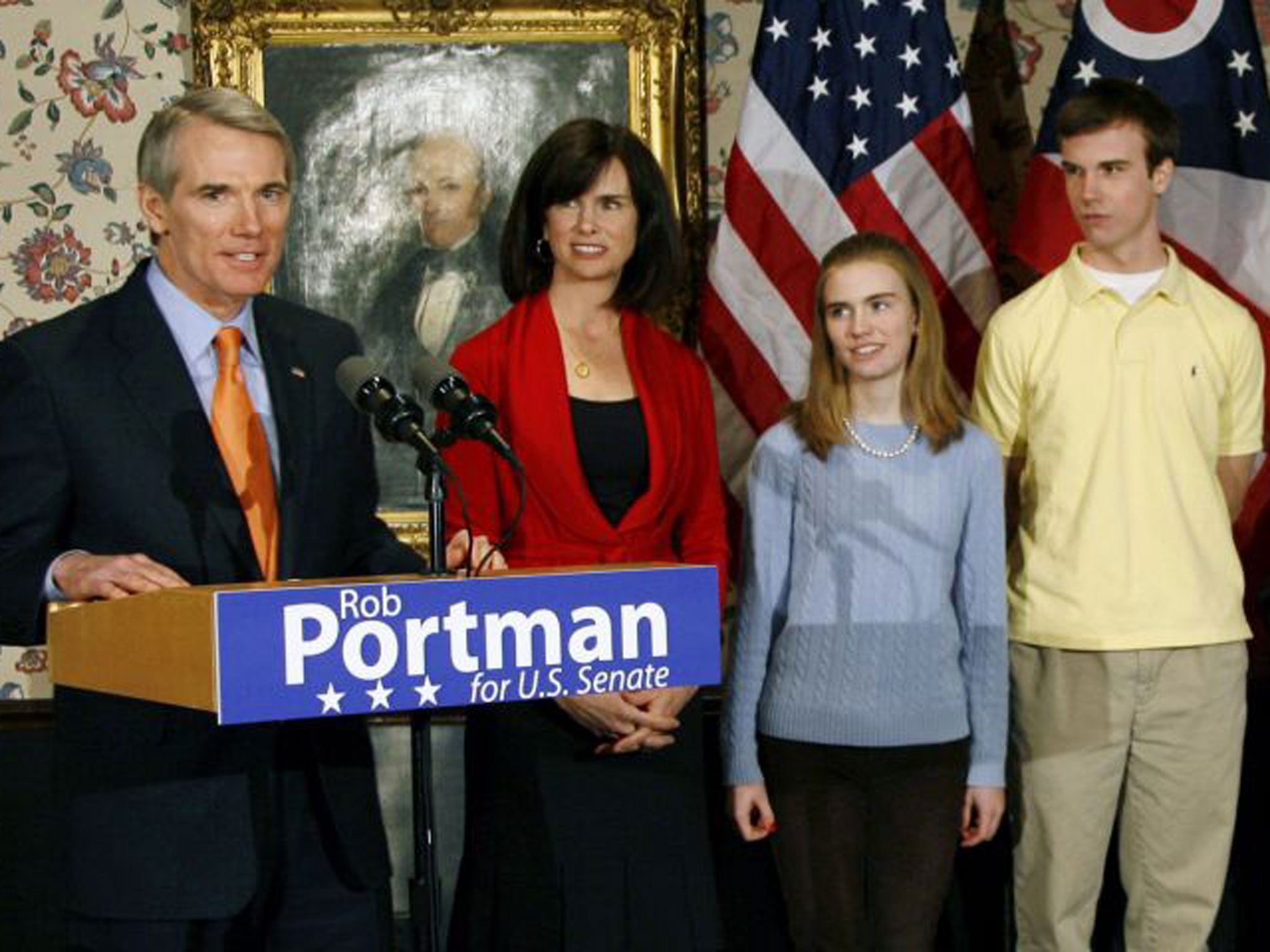Senator Rob Portman, food banks and why empathy fail is rife among our politicians
It took his son coming out as gay for Senator Rob Portman to reverse his stance on gay rights. What will it take for our leaders to acknowledge the impact of welfare reform?

Your support helps us to tell the story
From reproductive rights to climate change to Big Tech, The Independent is on the ground when the story is developing. Whether it's investigating the financials of Elon Musk's pro-Trump PAC or producing our latest documentary, 'The A Word', which shines a light on the American women fighting for reproductive rights, we know how important it is to parse out the facts from the messaging.
At such a critical moment in US history, we need reporters on the ground. Your donation allows us to keep sending journalists to speak to both sides of the story.
The Independent is trusted by Americans across the entire political spectrum. And unlike many other quality news outlets, we choose not to lock Americans out of our reporting and analysis with paywalls. We believe quality journalism should be available to everyone, paid for by those who can afford it.
Your support makes all the difference.The mysteries of parenthood are many and the childless must humbly accept the things they will never understand – what unconditional love feels like and the particularly acrid smell of baby poo, to name but two – but since when was equal rights for all on that list?
Last week, Republican Senator Rob Portman became the most prominent member of his party to support same-sex marriage. This was prompted by his 21-year-old son, who recently came out as gay. Congratulations, Senator, on your change of heart. Your story is a moving testament to the power of parental love. It’s also a depressing testament to the limits of the average politician’s imagination. Does it really take an experience so close to home for an elected official to appreciate the injustice of discrimination?
Over here, legislators are experiencing their own empathy fail over food banks. According to the Trussell Trust, the number of people dependent for their survival on charity handouts has increased from 29,000 to 300,000 in just two years.
Chris Mould, who is the head of the foodbank network, warns that more people will go hungry when the Coalition’s welfare reforms are enacted next month. “People who have been involved in formulating the new welfare policy don’t have an adequate understanding of how precarious the situation for people on low incomes has become.”
As if to illustrate this inadequacy, the DWP responded to these figures by reaffirming their commitment to the current course, failing to acknowledge any link between food banks and welfare reform, and attributing this tenfold increase instead to the success of The Trust’s own marketing efforts.
If the Government really believed in this marketing miracle, it would have snapped up The Trussell Trust’s PR team and set it the task of transforming the Coalition’s own out-of-touch-posh-boys rep. In fact, the lack of adequate Government response to poverty is no more a question of marketing than it is of ideology. You cannot propose your Friedman-cribbed solution to an economic problem, if you cannot even recognise the problem in the first place.
It seems over-simplistic to suggest that policy-makers must experience poverty before they can understand it, doesn’t it? We know that our MPs mostly went to the same schools and the same universities but, whatever that says about social mobility, surely an expensive education plus a sprinkling of noblesse oblige would ensure that what they lack in lived experience, they make up for in imaginative empathy? Ha.
In Budget week, when the link between Westminster decision-making and real people’s lives is most evident, that notion seems more naïve than ever. Changing the status quo is easier said than done, but let’s kid ourselves no longer: the only way to ensure compassionate government is diverse government. Or we could just wait until George Osborne’s son gets a little bit older and keep our fingers crossed.
Parents, take this tip
Things I don't understand about parenthood #2: Readers with children, please explain to me why your eight-year-old needs an iPad? Does little Jack need to Skype with Hong Kong investors en route to school? Or does he just prefer The Washington Post’s digital edition? Whatever he told you, be warned: a rash of “surprise” stories about iTunes bills in the papers suggests he’s actually using it to play extortionate online games. Why not save money and teach a lesson about the emptiness of consumerism in one fell swoop? He can do as we did: go round to a friend’s house - you know, the one with the more gullible parents - and play on their expensive technology. For free.
Join our commenting forum
Join thought-provoking conversations, follow other Independent readers and see their replies
Comments